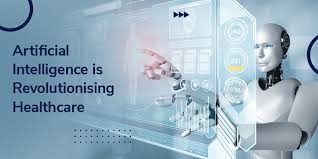
WHO, ITU, WIPO Report Reveals the Power of AI to Revolutionize Traditional Medicine
Jul 12, 2025 |
👀 109 views |
💬 0 comments
In a groundbreaking announcement from the AI for Good Global Summit, three major United Nations agencies have unveiled a new report detailing the transformative potential of artificial intelligence in the realm of traditional and complementary medicine. The World Health Organization (WHO), the International Telecommunication Union (ITU), and the World Intellectual Property Organization (WIPO) jointly released a technical brief that outlines a future where ancient healing practices are enhanced and validated by cutting-edge AI.
The report, "Mapping the application of artificial intelligence in traditional medicine," is not just a speculative look into the future. It showcases a burgeoning global movement where AI is already making a significant impact. From AI-powered diagnostics in the ancient Indian practice of Ayurveda to machine learning models identifying medicinal plants in Ghana and South Africa, technology is unlocking new frontiers in personalized and holistic healthcare.
A New Era for Global Health
Traditional, complementary, and integrative medicine (TCIM) is practiced in 170 countries and relied upon by billions of people worldwide. This new report details how AI can supercharge these practices by:
Accelerating Drug Discovery: AI algorithms can analyze complex traditional medicine compounds, potentially leading to new treatments for a wide range of diseases. One example cited is the use of AI in the Republic of Korea to analyze traditional remedies for blood disorders.
Preserving and Protecting Indigenous Knowledge: The report highlights the critical role of AI in safeguarding vast stores of traditional medical knowledge. Initiatives like India's Traditional Knowledge Digital Library and the Virtual Health Library in the Americas are using AI to create robust databases that can prevent "biopiracy"—the unauthorized use and patenting of indigenous resources and knowledge.
Enhancing Diagnostics and Personalized Care: AI can bring a new level of precision to traditional diagnostic methods. The report points to the emerging field of "Ayurgenomics," which combines the principles of Ayurveda with genomic data to create highly personalized health plans.
A Call for Ethical and Inclusive Innovation
While the potential is immense, the report issues a strong call for responsible and ethical development. A central theme is the urgent need to uphold Indigenous Data Sovereignty (IDSov). This principle ensures that indigenous communities have control over their own data and benefit from its use.
"AI must not become a new frontier for exploitation," stated Dr. Yukiko Nakatani, WHO Assistant Director-General. "We must ensure that Indigenous Peoples and local communities are not only protected but are active partners in shaping the future of AI in traditional medicine."
The report emphasizes that for AI to be truly effective and equitable, it must be built on high-quality, inclusive data and developed with the direct participation of the communities it is meant to serve.
This landmark report from the WHO, ITU, and WIPO signals a new and exciting chapter in global health. It envisions a future where the wisdom of ancient traditions and the power of artificial intelligence converge to create a healthier, more equitable world for all.
🧠 Related Posts
💬 Leave a Comment
